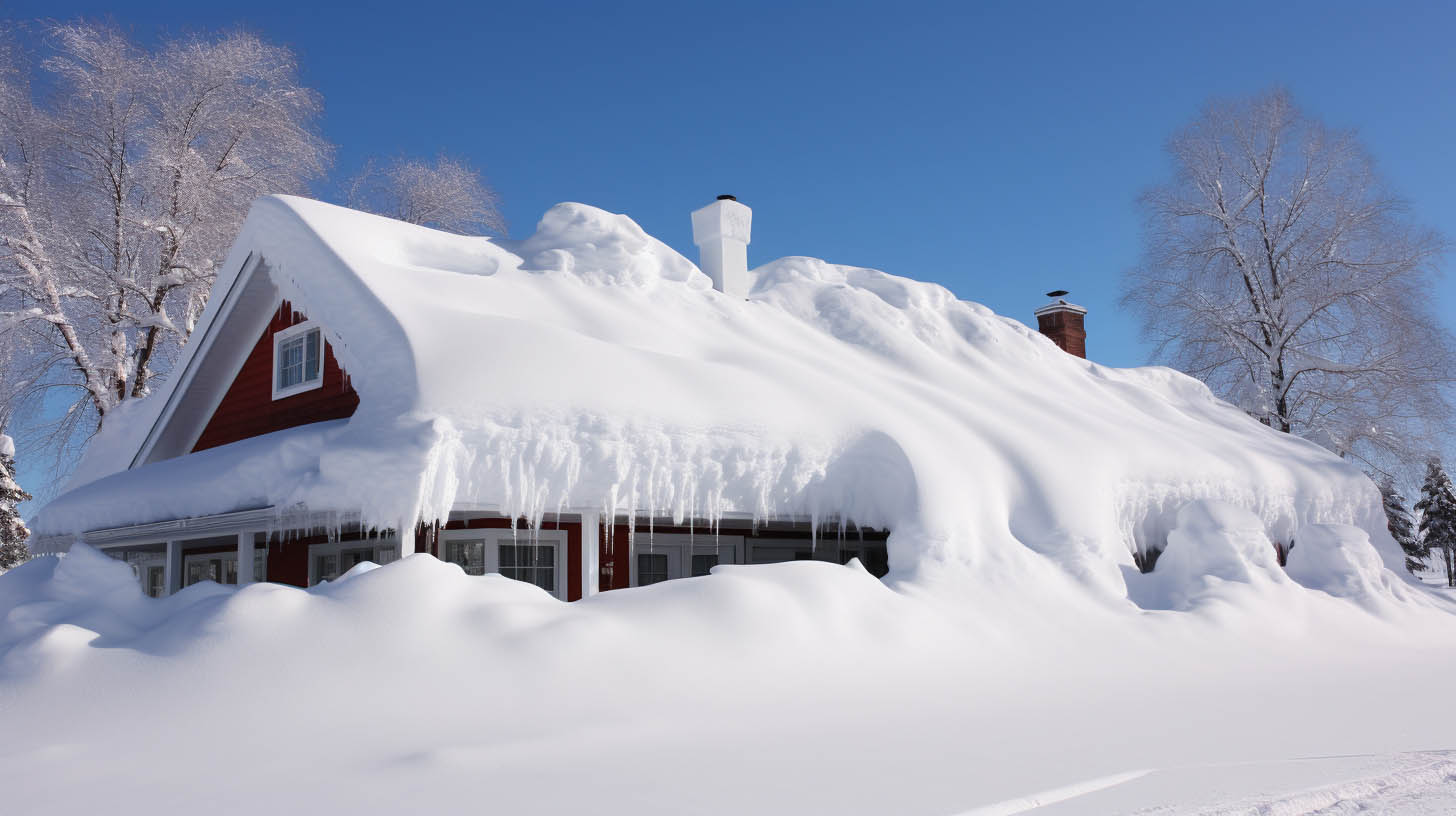
As winter approaches, homeowners and businesses in regions prone to heavy snowfall must consider the impact of snow load on their roofs. Advanced Roofing & Construction, LLC, a leading roofing company in Huntsville, AL, presents an in-depth analysis of roof snow load, offering essential insights and solutions to ensure the safety and longevity of your roofing structure.
The Science of Snow Load on Roofs
How Much Snow Can a Roof Handle?
The capacity of a roof to support snow varies based on its design, material, and the local climate. Typically, an average roof can sustain approximately 20 pounds of snow per square inch. This threshold is crucial for maintaining structural integrity, especially in areas with frequent heavy snowfall.
Regional Snowfall Patterns and Their Impact
The amount of snow a region receives directly influences the required strength of its roofs. For instance, cities like Syracuse, New York, experience an average of 123.8 inches of snow annually, necessitating roofs that can withstand significant snow loads. In contrast, states like Oregon and Washington see around 15 inches or less, posing a lesser burden on roofing structures.
Practical Tips for Managing Snow Load
Effective Snow Removal Strategies
To prevent damage, it’s vital to remove excess snow from your roof. Techniques include using a snow rake or hiring professionals for safe and efficient removal. Advanced Roofing & Construction, LLC, as a seasoned roofer in Huntsville, AL, recommends regular roof inspections and maintenance to mitigate the risks associated with heavy snow loads.
Calculating Snow Load for Safety
Understanding the density of snow is key to calculating its load on your roof. Densities vary from fresh snow (3.75 lb/cubic ft) to ice (57.25 lb/cubic ft). For flat roofs, the formula is straightforward: Density (lb/cubic ft) x Depth of snow (ft). However, pitched roofs require more complex calculations, often necessitating professional assessment.
Choosing the Right Roof Pitch for Snowy Climates
A roof’s pitch plays a critical role in its ability to shed snow. Experts recommend a minimum pitch of 1:12 in snow-prone areas. This inclination ensures that snow slides off more easily, reducing the load and risk of damage.
Advanced Solutions for Roof Snow Load Challenges
Innovative Techniques for Snow and Ice Prevention
To keep your roof safe during winter, consider installing heat cables along the edges or applying chemical deicers. These methods help in melting snow and preventing ice dams, which can cause significant damage.
The Role of Attic Insulation and Ventilation
Proper attic insulation and ventilation are crucial in maintaining a cold roof surface, thereby preventing snow and ice from adhering and refreezing. This approach not only reduces the snow load but also enhances the overall energy efficiency of your home.
Professional Assistance: Your Safeguard Against Winter Woes
In regions with heavy snowfall, it’s wise to seek professional help for roof maintenance and snow removal. Advanced Roofing & Construction, LLC offers expert services in roofing in Huntsville, AL, ensuring your roof is well-prepared to handle the winter season’s challenges.
Conclusion
Understanding and managing roof snow load is essential for the safety and durability of your property. By following these guidelines and seeking professional assistance when needed, you can ensure that your roof remains secure and functional throughout the winter months. Remember, proactive measures and regular maintenance are key to preventing costly repairs and ensuring the longevity of your roofing system.



